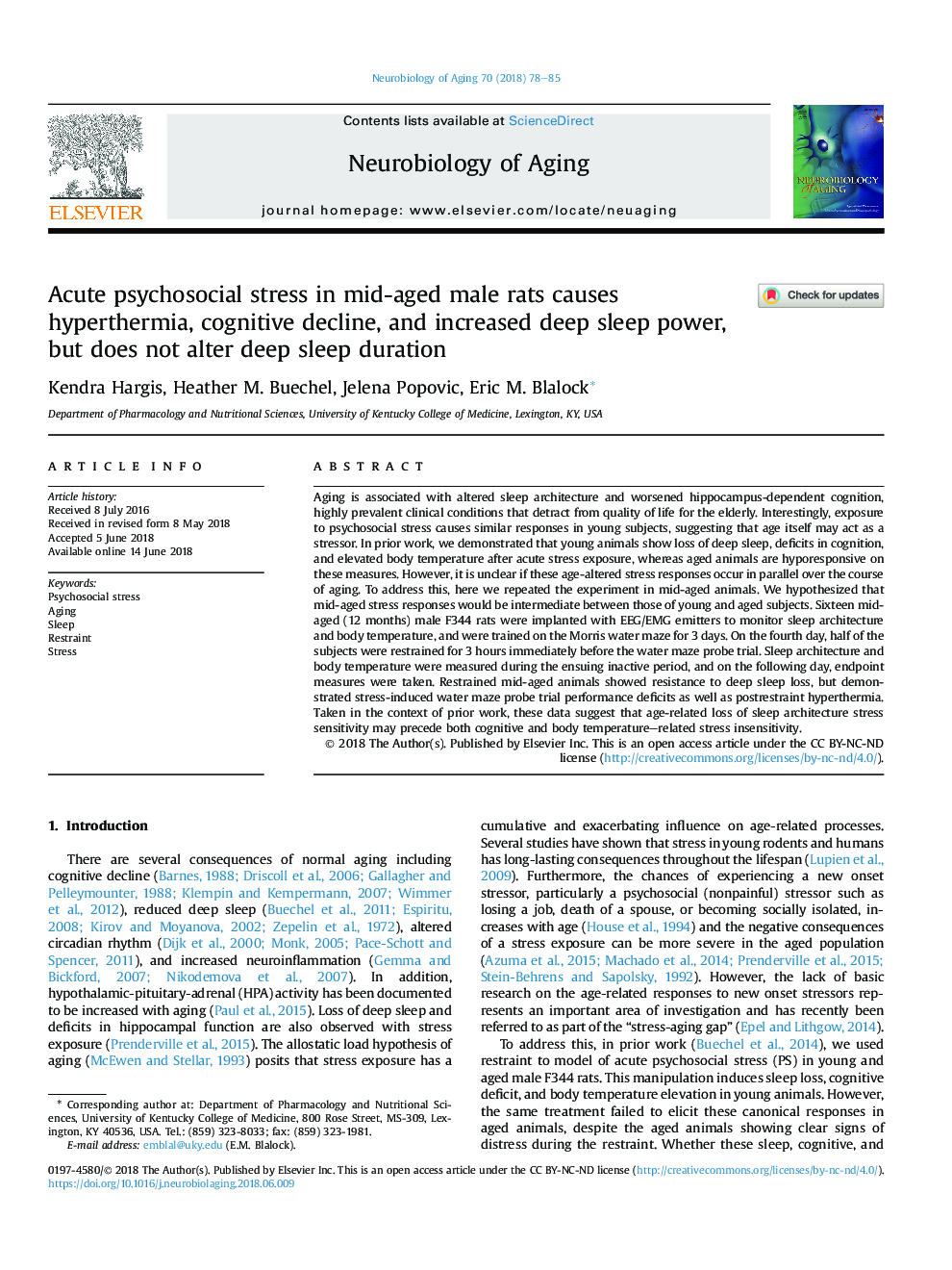| کد مقاله | کد نشریه | سال انتشار | مقاله انگلیسی | نسخه تمام متن |
|---|---|---|---|---|
| 6802815 | 1433514 | 2018 | 8 صفحه PDF | دانلود رایگان |
عنوان انگلیسی مقاله ISI
Acute psychosocial stress in mid-aged male rats causes hyperthermia, cognitive decline, and increased deep sleep power, but does not alter deep sleep duration
ترجمه فارسی عنوان
استرس روانی اجتماعی حاد در موشهای نر و ماده ناسالم باعث ایجاد هیپرترمی، کاهش شناختی و افزایش قدرت خواب عمیق می شود، اما خواب عمیق خواب را تغییر نمی دهد
دانلود مقاله + سفارش ترجمه
دانلود مقاله ISI انگلیسی
رایگان برای ایرانیان
کلمات کلیدی
استرس روانی اجتماعی، سالخورده، خواب خویشتن داری - خودداری - پرهیز، فشار،
موضوعات مرتبط
علوم زیستی و بیوفناوری
بیوشیمی، ژنتیک و زیست شناسی مولکولی
سالمندی
چکیده انگلیسی
Aging is associated with altered sleep architecture and worsened hippocampus-dependent cognition, highly prevalent clinical conditions that detract from quality of life for the elderly. Interestingly, exposure to psychosocial stress causes similar responses in young subjects, suggesting that age itself may act as a stressor. In prior work, we demonstrated that young animals show loss of deep sleep, deficits in cognition, and elevated body temperature after acute stress exposure, whereas aged animals are hyporesponsive on these measures. However, it is unclear if these age-altered stress responses occur in parallel over the course of aging. To address this, here we repeated the experiment in mid-aged animals. We hypothesized that mid-aged stress responses would be intermediate between those of young and aged subjects. Sixteen mid-aged (12Â months) male F344 rats were implanted with EEG/EMG emitters to monitor sleep architecture and body temperature, and were trained on the Morris water maze for 3 days. On the fourth day, half of the subjects were restrained for 3 hours immediately before the water maze probe trial. Sleep architecture and body temperature were measured during the ensuing inactive period, and on the following day, endpoint measures were taken. Restrained mid-aged animals showed resistance to deep sleep loss, but demonstrated stress-induced water maze probe trial performance deficits as well as postrestraint hyperthermia. Taken in the context of prior work, these data suggest that age-related loss of sleep architecture stress sensitivity may precede both cognitive and body temperature-related stress insensitivity.
ناشر
Database: Elsevier - ScienceDirect (ساینس دایرکت)
Journal: Neurobiology of Aging - Volume 70, October 2018, Pages 78-85
Journal: Neurobiology of Aging - Volume 70, October 2018, Pages 78-85
نویسندگان
Kendra Hargis, Heather M. Buechel, Jelena Popovic, Eric M. Blalock,
